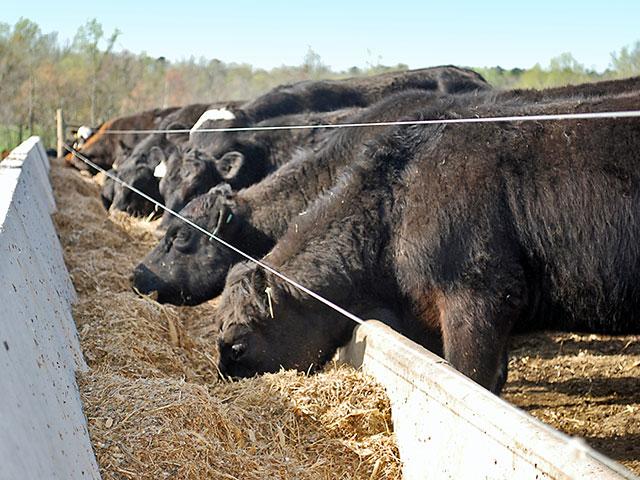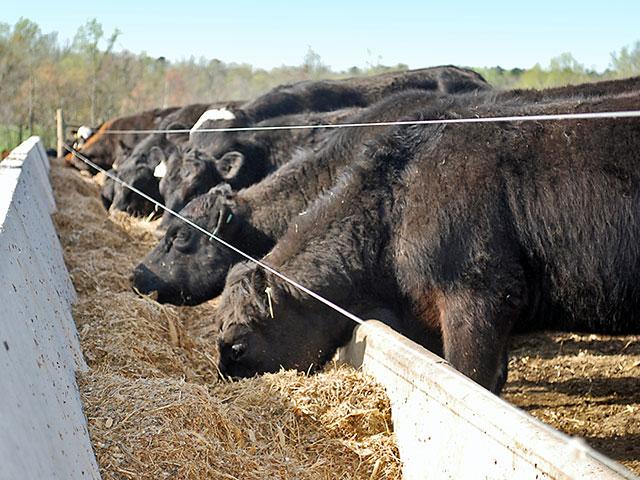Ag Policy Blog
Law Firms Chasing Cattlemen as Clients in Price-Fixing Cases
Over the past couple of weeks the advertisements on my various social media feeds switched from holiday shopping to a law firm advertising for clients over cattle price-fixing lawsuits.
I don't own cattle like some others at DTN, but I apparently fit the bill enough to solicit as a possible client.
I've also gotten a few emails over the past month or so from cattle producers asking how they take part in the lawsuit.
The big lawsuit against the country's four largest packers is in the U.S. District Court of Minnesota. It's a case originally brought by R-CALF USA, the National Farmers Union and others against Cargill, JBS S.A., Marfrig Global Foods (National Beef) and Tyson Foods. The case alleges the Big Four packers violated antitrust laws starting in early 2015 over fed cattle markets.
The case has been renamed to "In re Cattle and Beef Antitrust Litigation," No. 20-cv-1319 in the U.S. District Court of Minnesota.
A whole bunch of retailers, fast-food chains and others had filed similar claims. Some of the litigation was through the Minnesota court. Other fast-food companies have now filed an identical antitrust suit in Florida.
So right now, some law firms have jumped on the bandwagon, looking to roundup individual livestock producers as clients.
But talking with Bill Bullard, CEO of R-CALF, he pointed out producers don't need to sign up for representation. All cattle producers who sold cattle or traded live cattle futures on the CME starting in early 2015 are already among the plaintiffs.
P[L1] D[0x0] M[300x250] OOP[F] ADUNIT[] T[]
The most important thing is making sure that you keep any documentation proving you sold fed cattle or traded cattle contracts on the CME between 2015 and the present. Keep your records and back them up somewhere.
First, in the Minnesota case, it's going to take months for the attorneys on all sides to file their briefs on why this case does or does not deserve class-action status. Then, likely before the end of 2023, the federal judge will rule on whether the case should move ahead as a class-action lawsuit.
This doesn't require cattle producers to find representation. If a producer already has some legal representation, they should ask those attorneys about their views on the case and if they need to take any additional steps.
Some food for thought here: The main law firm advertising on my social media is involved in a lot of class-action cases. In fact, the law firm was involved in the litigation when grain companies and corn producers sued Syngenta over the unapproved corn trait that China rejected in imports. Syngenta, if you remember, eventually agreed to a $1.5 billion settlement with corn producers. This one law firm solicited tens of thousands of farmer clients. But then a group of farmers ended up suing this particular law firm for excessive legal fees over the 40% cut the law firm took from their clients. A federal judge didn't like the fees and moved to set aside the contracts and ruled that the law-firm fees would not come from the farmers' settlement money. The law firm then ended up winning a lawsuit filed by its clients. All of that was according to accounts from Bloomberg and Reuters.
It really reads like a confusing legal mess that involved thousands of farmers and this particular law firm that had solicited their business.
For a timeframe comparison, the Syngenta litigation started in 2013 when China began rejecting grain shipments, causing prices to fall and leading to grain companies and farmers to sue. The first case to go to trial was in spring 2017 and Syngenta settled later that year. These lawsuits between the farmers and the law firm that solicited their business then played out until last year.
The cattle antitrust case is a lot more complicated than the Syngenta corn case.
A 40% contingency fee and the risk of having to sue your own counsel all suggest it might be a good idea to take a wait-and-see attitude. In the meantime, make sure you have your sales records in good order.
You've got time.
Also see, "Major Restaurant Chains Allege Packers Conspired to Fix Beef Prices,"
Chris Clayton can be reached at Chris.Clayton@dtn.com
Follow him on Twitter @ChrisClaytonDTN
(c) Copyright 2023 DTN, LLC. All rights reserved.






Comments
To comment, please Log In or Join our Community .